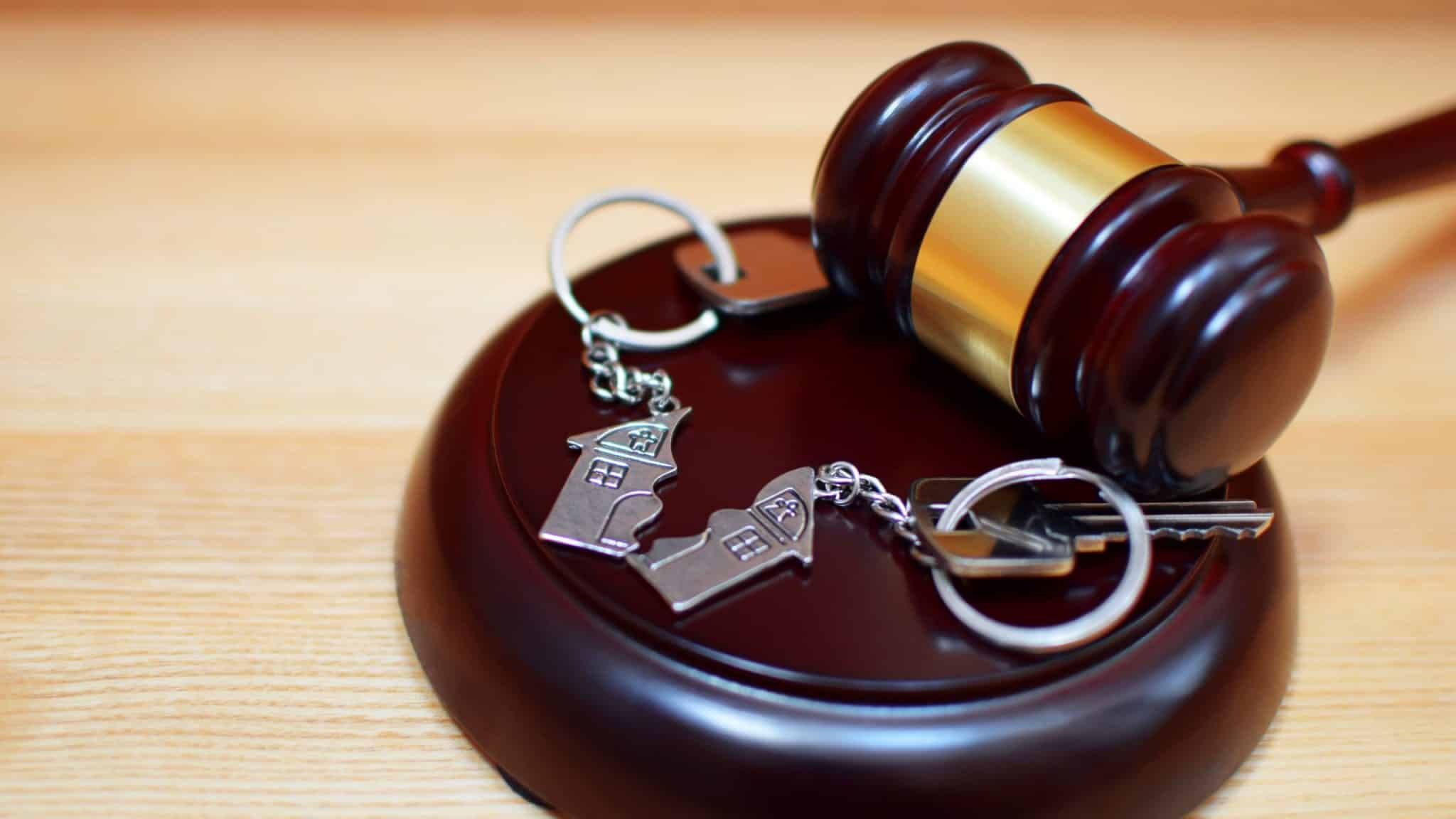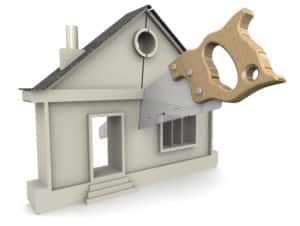Maine Marital Property Division Lawyers

Property division is one area of divorce that confuses many individuals. Many couples do not know how Maine divides property in a divorce or how the court determines whom to award what property to.
The lack of this knowledge can cause anxiety and sleepless nights. At The Maine Divorce Group, our priority is to give you the information that you need to make informed decisions.
Having this information can help decrease your anxiety and improve your plans for moving forward.
How is property classified in a Maine divorce?
The classification of property in a divorce has vast implications on which spouse receives what property.
Maine considers the policy of “equitable distribution” when dividing property in a Maine divorce. Community property states, like Maine, try to allocate a couple’s property between spouses as evenly as possible.
It is crucial that your property is appropriately classified so that you can keep what is yours, or classified as non- marital property, and that you can receive what is equitable under the law.
Generally speaking, marital property is property that was acquired after the legal marriage took place. Non-marital property is property that:
- Was received by one spouse as a gift or an inheritance after the marriage
- Was acquired after the issuance of a decree of legal separation
- Grew from a rise in the value of a separate asset of one spouse
- Was bought with proceeds from property owned before the marriage, or a gift or inheritance
- Any other property acquired prior to the marriage
Usually, in a divorce, the court will set aside any separate property that each spouse owns and focus on the marital property.
Is Maine a community property state?
“Community property” means that you divide the marital estate in half down the middle during a divorce.
Maine, on the other hand, is an “equitable distribution” state, meaning that property division aims to divide assets and debts from the marital estate as fairly as possible.
If you cannot reach an amicable settlement with your spouse, a judge will decide based on many contributing factors,
Property Valuation During Divorce
Once the determination is made about which property is marital and which is not, the marital property will need to receive a valuation.
Under the law, marital property in Maine must be as fairly and equitably divided as possible.
In many cases, this cannot be achieved without first obtaining a valuation. A valuation is often needed when there is real estate, retirement or investment accounts, or a business involved in the divorce.
What is considered marital property and separate property under Maine law?

Most property accumulated during a marriage is considered part of the marital estate regardless of whose name is on the title. However, under Maine property division laws, separate property may include:
- Any assets acquired before the marriage began
- Any assets acquired as a gift or inheritance
- Any assets acquired in exchange for property owned before marriage or received as a gift or inheritance
- Any assets acquired after a decree of legal separation
- Any assets excluded by a valid agreement between the spouses (such as a prenup)
Sometimes, the increase in value of separate property may be subject to equitable property division rules—unless it can be shown that the increase in value had nothing to do with the marriage (there was no monetary or labor contribution from the other spouse).
For instance, if one partner brought a business into the marriage and the value of the business increased because of the involvement of the other spouse, the increase in value would usually be subject to equitable division rules.
Marital property nearly always includes the family home and its contents, as well as motor vehicles, retirement accounts, pension plans, bank accounts, and any businesses acquired during the marriage.
While property division may seem relatively straightforward at first, there are plenty of gray areas. Sometimes, separate property becomes marital property after an unintentional move from one of the spouses…such as paying an inheritance into a joint bank account (potentially converting separate property into marital property).
If you are in any doubt, it is best to discuss your situation and your options with an experienced property division lawyer.
How do you accurately assess property value in Maine?
It can be challenging to calculate the value of marital property. Again, it sounds straightforward enough—and usually is for bank accounts, motor vehicles, and so on—but some assets like real estate or a business may require a professional appraisal.
Retirement accounts are also notoriously difficult to value and may require the services of an actuary to provide an estimate.
How do you divide the property after divorce in Maine?
There are two basic ways to divide property in Maine once you and your spouse have determined what falls into the marital estate and how much it is worth:
- Negotiate between yourselves or with the help of a mediator or lawyer
- Let a judge decide at a contested hearing
Most couples prefer the first option as it is usually less time-consuming, expensive, and stressful.
If there is no hope of an acceptable agreement, the court will need to decide. It is not simply a case of punching numbers into a calculator. A judge has the freedom to exercise considerable discretion and will consider the following factors before deciding what is an “equitable” property division:
- The contributions of each spouse to the value of the marital property, including the contribution as a homemaker
- The amount of separate property possessed by each spouse
- The economic circumstances of each spouse at the time the property division applies
- Which spouse has custody of the children
With the final factor listed above, this is of particular importance to who has the right to live in the family home.
In some cases, the property division may end up practically equal but this is not necessarily always the case. It depends on the influence of each of the above factors.
Who gets the house?
For many couples, the single biggest asset in the marriage is the family home. This can lead to disputes, especially if there are dependent children in the marriage.
If the couple does not want to sell the house and divide the proceeds equally (the easiest solution), other options must be sought. If one spouse wants to sell it and the other spouse wants to keep it, a court order may be needed.
In many cases, the spouse who primarily lives with the children wants to stay in the marital home to provide a degree of continuity for the children.
If there are sufficient joint assets in the marriage for the custodial parent to buy out the non-custodial parent’s share of the home, this may be possible. Alternative options are refinancing the home or both parents keeping their names on the home until an agreed date in the future when they sell (e.g., when the youngest child completes college).
How is debt handled in a Maine divorce?

Debts incurred before the marriage, such as student loans, are separate from the marital debt and remain the responsibility of the relevant spouse to pay.
Most other debts, such as the mortgage, car loan, and credit card bills are the joint responsibility of the spouses to settle. However, the division of property must remain “equitable” so, if one of the spouses accumulated major gambling debts, for instance, it would not be fair to burden the non-gambling spouse with half of the debt.
After the property has been divided in a divorce, debts associated with any property awarded to each spouse generally become the sole responsibility of that spouse to pay.
Contact The Maine Divorce Group Today
If your marriage involves multiple assets, high assets, or complex issues with assets, you need to hire an experienced attorney from The Maine Divorce Group. When it comes to property division in a divorce, you have a lot to lose.
Your future will be impacted substantially if you do not fight for what is yours.
Don’t take your chances. Instead, work with a lawyer who will strive to make sure that your property is appropriately classified, valued, and divided. Contact us today to receive your divorce consultation.
Call 207-230-6884 or contact us online to schedule a consult with one of our highly skilled divorce & family law lawyers today.
We serve many clients, just like you, across Maine in Cumberland, York, Sagadahoc, & Lincoln Counties.
About William Bly –
Family Law Expertise You Can Trust

William T. Bly is a top-rated divorce and family law attorney serving clients across Maine. Bill has over 20 years of experience helping clients navigate divorce, child custody, support, and other complex family law matters with clarity and compassion.
Known for his practical advice and client-first approach, Bill combines deep legal knowledge with genuine empathy. He listens closely, offers clear options, and prioritizes fair outcomes—helping clients move forward with dignity. When litigation is necessary, Bill is a skilled courtroom advocate who is always prepared to fight for the best result.
If you’re looking for one of the best divorce lawyers in Maine or a trusted family law attorney who truly cares, William T. Bly is ready to help you take the next step.
